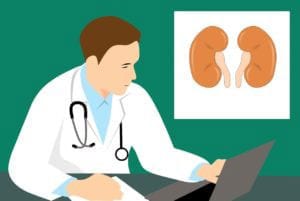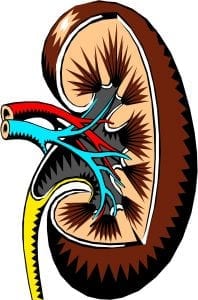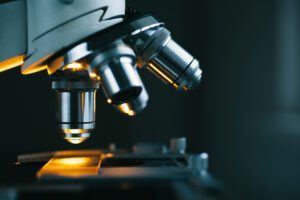Autosomal Dominant Polycystic Kidney Disease (ADPKD)
What is autosomal dominant polycystic kidney disease (ADPKD)?
Autosomal dominant polycystic kidney disease (ADPKD) is the most common form of polycystic kidney disease (PKD). PKD is a genetic disorder that causes many cysts to grow in the kidneys, which damages them and reduces their function.
In this form of the disease, the PKD is passed on from parent to child in an autosomal dominant pattern. Human traits are inherited from a person’s father and mother; each one contributes a copy of a gene, which interacts with the other copy. Since the disorder is inherited in a dominant pattern, only one copy of the mutation must be inherited for the person to have the disease.
Symptoms of ADPKD usually develop between age 30 and 50, but they can appear earlier. It affects about 1 in every 400 to 1,000 people. People who have a history of ADPKD in their family are at a high risk of getting it.
What are the symptoms of ADPKD?
As mentioned, the major symptom of ADPKD is kidney cysts. In many cases, the disease does not cause signs or symptoms until those cysts are half an inch or larger in size. Because of this, if you are at risk for ADPKD, you should meet with a physician before your symptoms start. Other symptoms include:
- High blood pressure
- Pain in the back, sides, and between the ribs and hips, which can be ongoing or short term
- Headaches
- Increased abdomen size
- Cysts in the liver
- Pancreatic cysts
- Urinary tract infections
- Blood in the urine (hematuria)
- Kidney stones
- Kidney failure
- Abnormal heart valves that cause a fluttering or pounding in the chest
- Brain aneurysm
What causes ADPKD?
Mutations causing ADPKD have been found in the genes called PKD1 and PKD2.
How is ADPKD diagnosed?
ADPKD is diagnosed using the following procedures:
- Recording of family history
- Ultrasound
- CT scans
- MRI
- Genetic testing
- Cyst analysis and count
What are the treatments for ADPKD?
ADPKD treatment focuses on managing symptoms to relieve pain. It includes, but is not limited to:
- Pain medication
- Surgery
- Medications to lower blood pressure
- In the case of kidney failure: dialysis or kidney transplant
- Antibiotics to treat bladder or kidney infections
- Lifestyle changes: regular physical activity and healthy eating and drinking
- Genetic counseling
Where can I find out more about ADPKD?
Autosomal Dominant Polycystic Kidney Disease (ADPKD) Articles

Investigational Treatment for ADPKD Earns FDA’s Orphan Drug Designation



Rare Community Profiles: PKD Foundation and IQVIA Partner to Create Next-Gen ADPKD Registry

Developing Novel Solutions for ADPKD: An Interview with XORTX Therapeutics’ CEO Dr. Allen Davidoff

Study of the Week: A Ketogenic Diet Could Benefit APDKD Patients





